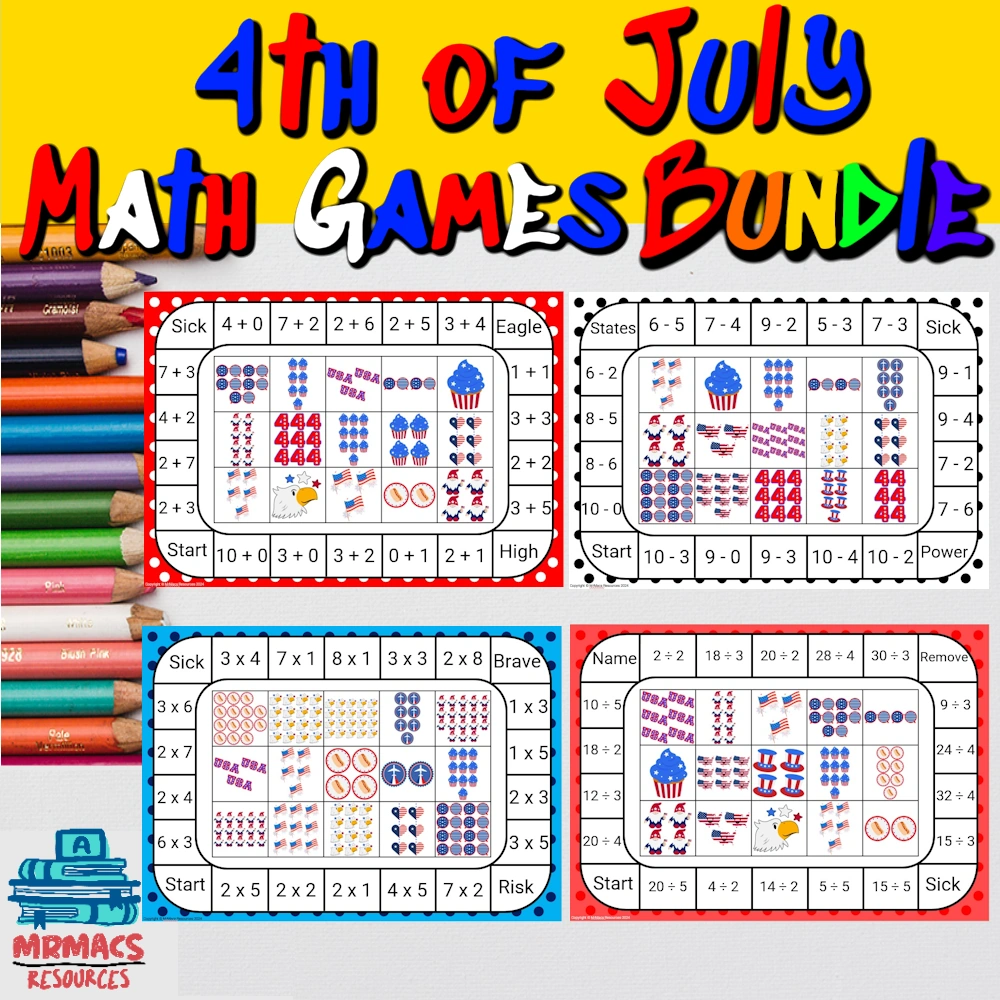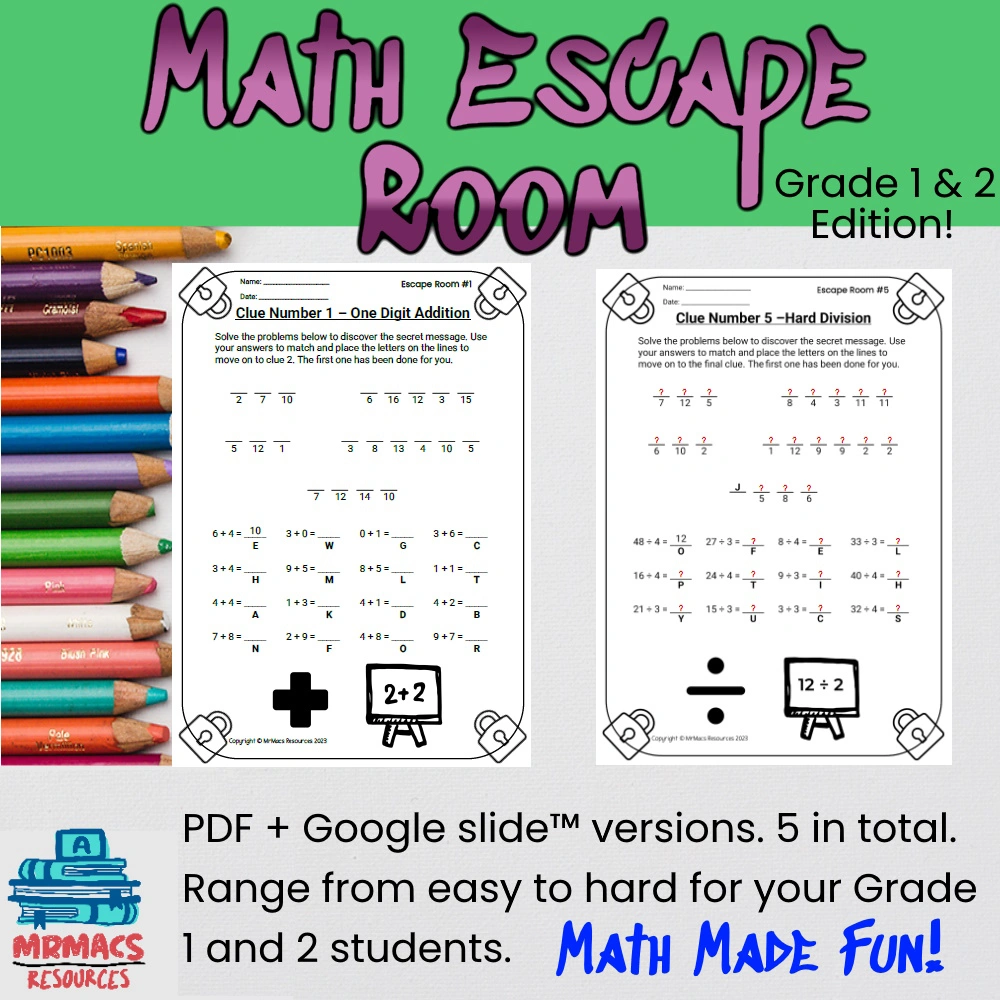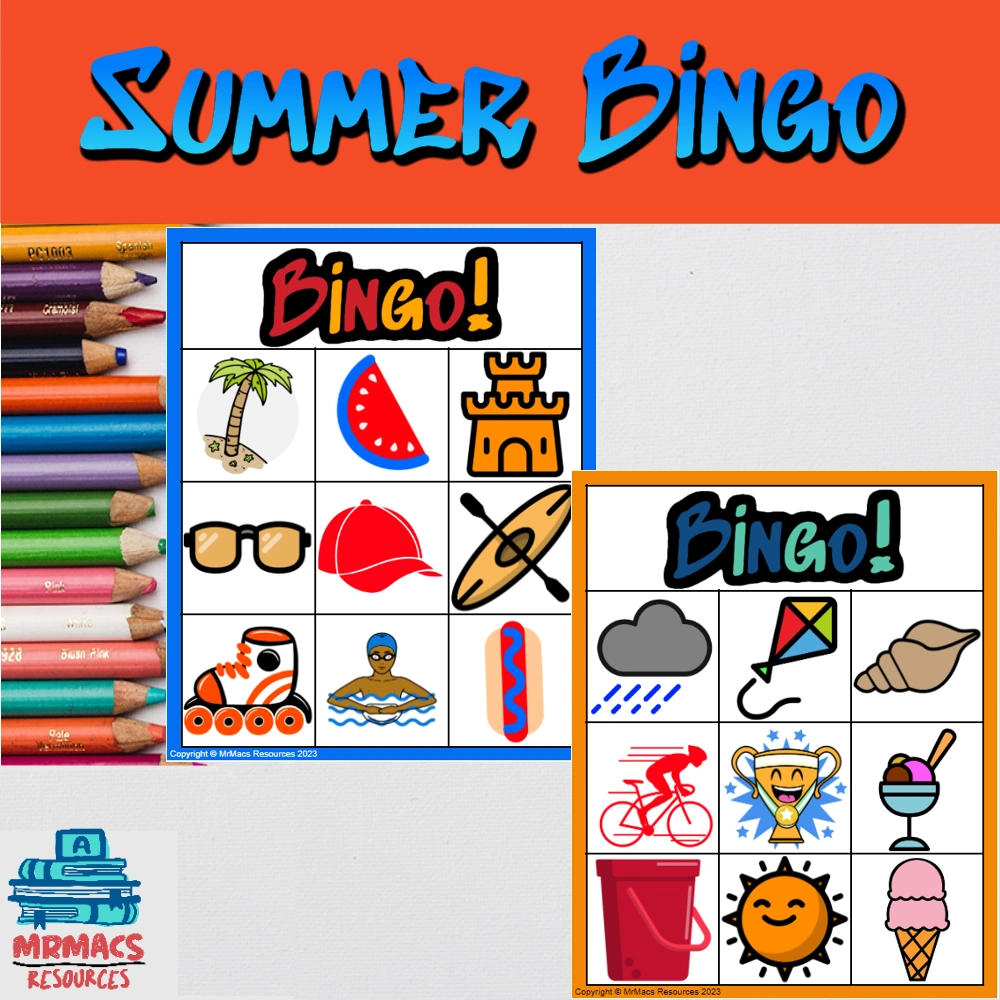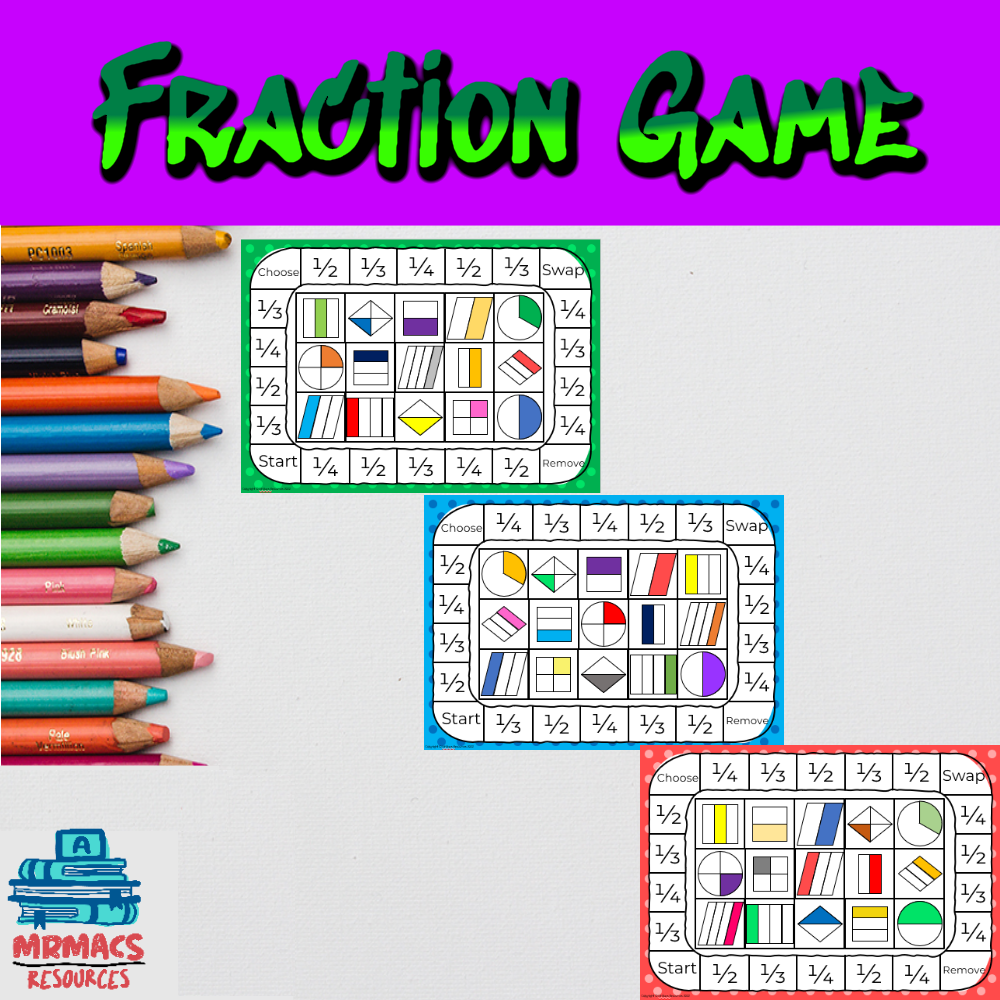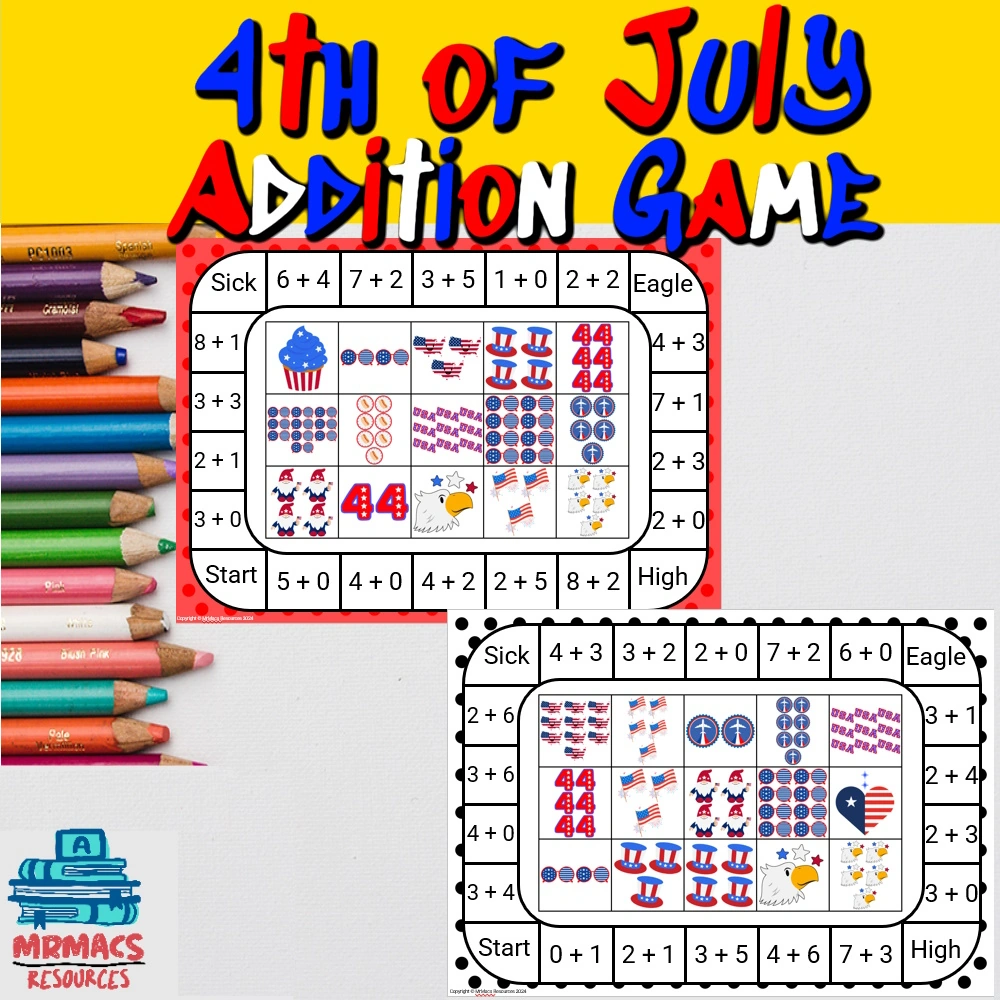
Looking for fun and engaging 4th of July math games to get kids excited about learning their operations? Addition, subtraction, division, and multiplication games are the perfect opportunity to teach the operations in the theme of 4th of July. The games include an interesting way for your student to learn their operations with their friends.
In the ever-evolving landscape of education, innovative methods to engage students and enhance their learning experiences are continually being explored. One such method that has gained significant traction is the use of math games. These interactive and often entertaining tools are proving to be highly effective in helping your students grasp complex mathematical concepts. Here, I will delve into the myriad of benefits of incorporating math games into the educational journey of your students.
Why is Learning Through Math Games Important?
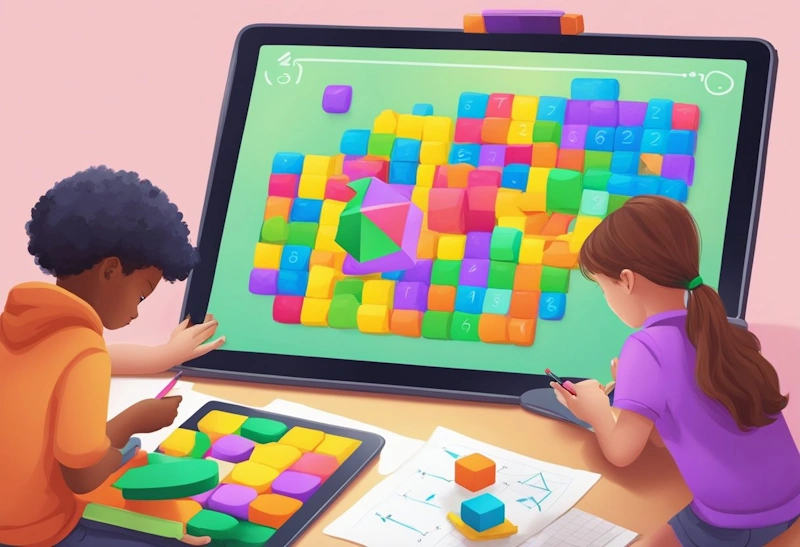
Enhanced Engagement and Motivation
Traditional math lessons can sometimes feel monotonous and intimidating to your students. Math games, on the other hand, introduce an element of fun and competition, which can significantly boost your student engagement. You’re your students are actively participating in a game; they are more likely to stay focused and motivated. The excitement of achieving high scores or advancing to new levels can transform the learning process into an enjoyable experience.
Immediate Feedback and Self-Paced Learning
One of the significant advantages of giving your students math games is the immediate feedback they provide. Unlike traditional homework or tests, where feedback might come days later, engaging games offer instant responses to students’ actions. This immediate feedback will help your students quickly understand their mistakes and learn from them. Additionally, math games allow for self-paced learning, enabling your students to progress at their own speed and revisit challenging concepts as needed.
Development of Computational Fluency
Math games often involve repetitive practice of basic arithmetic operations, which is essential for developing computational fluency. Through engaging gameplay, your students can practice addition, subtraction, multiplication, and division in a way that feels less like rote memorization and more like an enjoyable activity. This repeated practice helps solidify their understanding and speed in performing these operations.
Encouragement of Collaborative Learning
Many math games are designed to be played in pairs or groups, fostering a collaborative learning environment. Above all, giving your students a chance to work together to solve problems or compete in friendly matches, they learn to communicate effectively, share strategies, and support each other. This collaborative aspect not only enhances their mathematical skills but also builds teamwork and social skills.
Adaptability to Different Learning Styles
Each of your students has a unique learning style, and math games cater to this diversity. Visual learners for example benefit from colorful graphics and animations, while auditory learners from sound effects and verbal instructions, and kinesthetic learners from interactive gameplay. This adaptability ensures that all your students, regardless of their preferred learning style, can benefit from math games.
Reduction of Math Anxiety
Math anxiety is a common issue that can hinder your student’s ability to perform well in the subject. Math games can help alleviate this anxiety by presenting math in a less formal and more approachable manner. Hence, the playful nature of games can reduce the pressure associated with traditional math exercises, making your students feel more comfortable and confident in their abilities.
4th of July Themed Math Games
Now that we have established the benefits of learning through gameplay, we can look at some resources that can be used in your classroom to take advantage of these benefits.
Likewise, my 4th of July themed operations games can be used to teach math operations in a fun an engaging way. They are games where your students roll a die and match the question they land on to a picture on the gameboard.
How to Play My 4th of July Math Operation Games
1) Each player starts on the start square.
2) The player then rolls a die and moves in a clockwise direction the number of spaces shown on the die.
3) The player then tries to find a match for the problem they land on to a matching picture on the gameboard.
4) If a match can be found the player can put their counter/token on that space. It is then, the next player’s turn.
5) If no match is found, then it is the next player’s turn.
6) The game continues until there are no matches left.
7) The player with the most counters/tokens on the gameboard wins.
Which Grades Are the Math Games Best For?
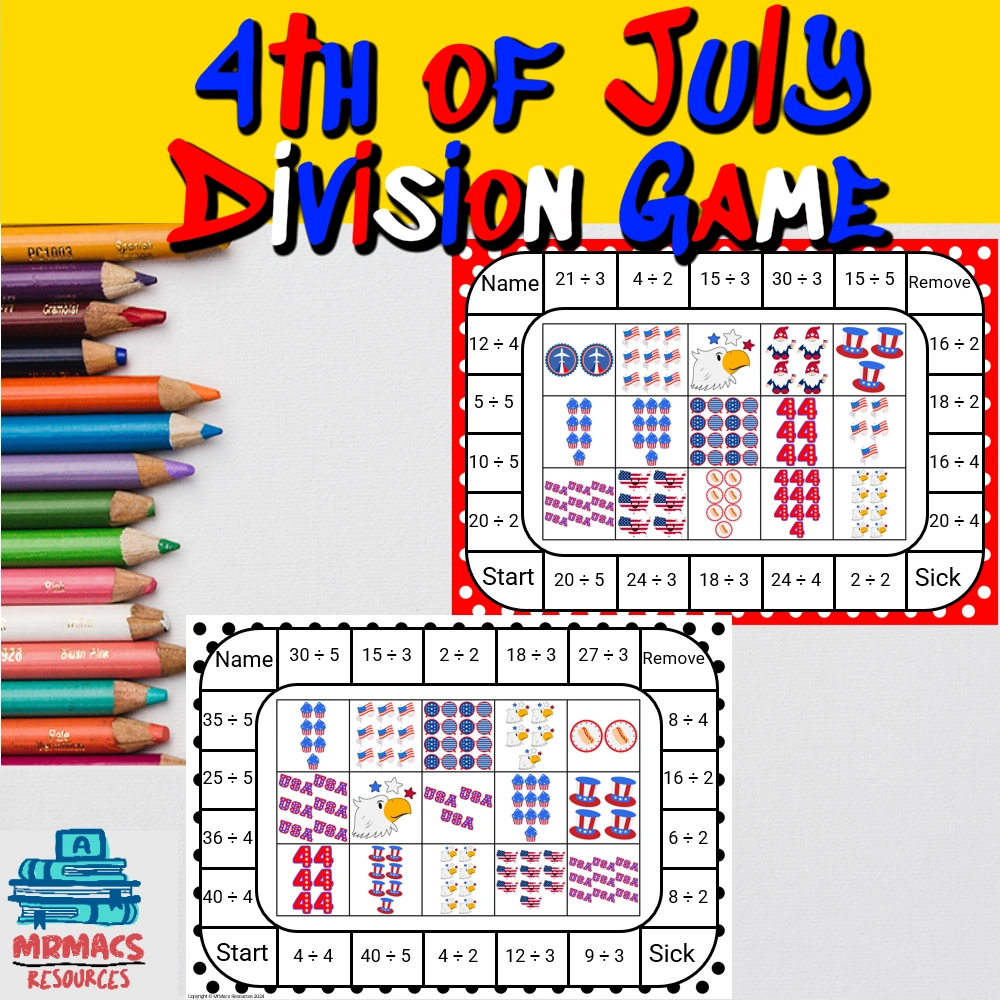
Now this depends on the grade you teach and your students’ ability. However, Grades 1 and 2 would make more use of the 4th of July addition and subtraction games.
While, Grades 3 and 4 would make more use of the multiplication and division games.
Would My Students Want to Play the Math Games Over and Over?
Yes! To make the math games more interesting I have included bonus squares. These bonus squares provide an extra level of excitement and thrill to each game that is played. My 4th of July games come complete with special 4th of July bonus squares not seen in any of my other games.
For example, Brave: If a player lands on this square they are to roll a die. If the number is an even number (2, 4, 6), they are a brave American hero and get 2 extra turns. If not, they lose a turn.
Tell me More About These Bonus Squares
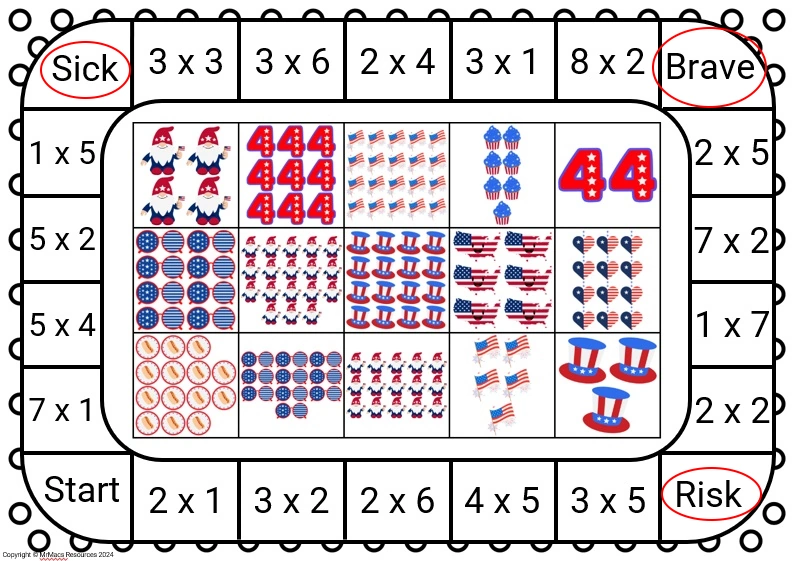
There is a total of 3 bonus squares on each gameboard. They come loosely in three categories and some examples are…
1) Positive: Roll again.
2) Interesting: Play a game of rock, paper, scissors.
3) Negative: Lose a turn.
Why Would my Student Want to Play These Math Games?
Simple, students love to compete and beat their peers. They will be having so much fun it will feel like they are not learning. The desire to win will only strengthen their ability to learn their operations!
The games contain colorful pictures and are 4th of July themed. What better way to celebrate 4th of July this year with a few fun and engaging math games?
Conclusion
To conclude, incorporating math games into the educational curriculum offers a wealth of benefits for your students. From enhancing engagement and motivation to improving problem-solving skills and reducing math anxiety, these games provide a dynamic and effective way for your student to learn mathematics. As technology continues to advance, the potential for math games to revolutionize education becomes even more promising. To add, by embracing these innovative tools, you can create a more interactive, enjoyable, and successful learning experience for your students.
I am interested in hearing what you have planned in your classroom this year for your 4th of July celebrations.
Click here if you would like to purchase my 4th of July Math Games.
About The Author

Hi! My name is Mr Mac. I am a K – 6 teacher. I love to create resources for teachers to make their teaching lives easier.
